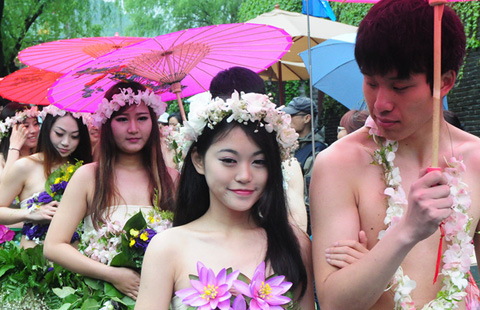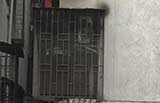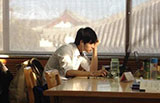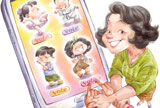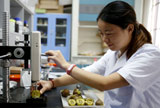First Chinese book on Tokyo Trial to be published
By WANG KAIHAO (chinadaily.com.cn) Updated: 2012-10-25 21:58More than 60 years has passed since the International Military Tribunal for the Far East was established in Tokyo to try World War II Japanese war crimes.
However, the atmosphere in the meeting room in the National Library of China (NLC) was as serious as it was all those years ago when about 50 historians, publishers, and librarians gathered on Wednesday to launch the publishing project The Proceedings of International Military Tribunal for the Far East.
The book will be the first in a series and the first Chinese book to unveil the original files of the biggest international trial in human history.
The tribunal, commonly known as the Tokyo Trial, ran from April 1946 to November 1948. Twenty-eight Japanese military and political leaders were charged with Class A crimes, and more than 5,700 Japanese nationals were charged with Class B and C crimes.
The series, co-published by NLC and Shanghai Jiao Tong University, will include 80 volumes comprising of nearly 50,000 pages of photocopies in English documenting the two-and-a-half years of proceedings. The compiling of the documents is scheduled to be completed by the end of 2013.
“It will be a milestone for us to study the Tokyo Trial,” says Zhou Heping, curator of the NLC. “The trial determined the political atmosphere in Japan and the whole of Eastern Asia after World War II, it should not be neglected. China is one of the victors of World War II, we cannot be absent in the relevant academic study.”
While Japan has more than 300 published treatises on the trial, China has almost no academic books solely focused on this period of history.
“It is pitiful my father could not finish his book,” says Mei Xiao’ao, son of Mei Ru’ao (1904-1973), who represented China as one of 11 judges at the trail. “The key part about the trial is missing.”
Mei Ru’ao started writing his memoirs about the trial but abandoned the project, uncompleted, during the “cultural revolution” (1966-76).
NLC and Shanghai Jiao Tong University joined forced to establish China’s first study center on the Tokyo Trial in March. The series will be the first and the most important project for the center.
“We cannot do in-depth study on this event without an authoritative file,” says Cheng Zhaoqi, head of the research center. “Many right-wing Japanese politicians and historians doubted the justice of the trial and distorted the reality. Academia can be diverse, while some international disciplines cannot be broken, so we have to accelerate our research to counter their version of events.
“It’s only the beginning,” Cheng said. “We plan to expand relevant research based on this original file. It is not only historians’ responsibility to do the work. Experts on international relations and laws should also join in the project.”
The meeting also looked at some foreign publications regarding the Tokyo Trial collected by NLC. Cheng said following the Chinese publishing project, the publishers will look into translating foreign work on the trials into Chinese.
“It will also help to solve the dispute on Diaoyu Islands and some other controversies left by the war if we seriously study that period of history, we must hurry,” Cheng said.
- China confirms ships patrolling Diaoyu Islands
- Secret talks held over Diaoyu Islands
- Diaoyu Islands: Stealing is stealing
- Chinese surveillance ships patrol around Diaoyu Islands
- Diaoyu Islands row takes toll on cultural and travel sectors
- Tension over Diaoyu Islands drives German automakers' success
- Japanese exhibitors fret over fallout from Diaoyu row
- Japanese exhibitors fret over fallout from Diaoyu row
- Govt strengthens vaccine oversight
- Three Gorges Dam discharges more water, braces for flood
- Two dramatists, one world apart
- China open to Sino-US space cooperation
- Mating snow leopards photographed in NW China
- Government line on religions wins support from faith leaders
- Li hails quake victims' spirit
- Xi expects new chapter in aerospace development
- Chinese scientists modify gene to make humans immune to HIV
- Premier underlines peaceful settlement of boundary issues with India

